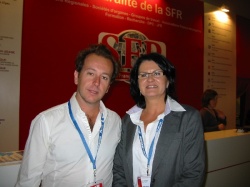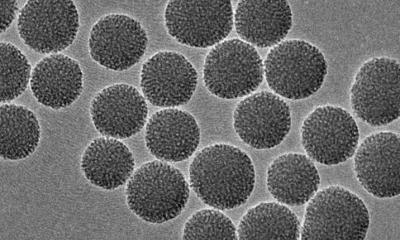Ultrasound exam tests chemotherapy effectiveness
A low-cost examination promises to show whether high-priced chemotherapy is effective or the treatment should end - John Brosky reports
A multi-centre French study is demonstrating that a four-minute ultrasound scan using a contrast agent can be performed after the first month of treatment and provide quantitative proof of whether a tumour is responding to the therapy.


The novel test means that months of unnecessary treatment, often causing harsh effects on patients’ health, can be avoided. In addition, for medics the test helps to match the right treatment to the right patient more quickly and, for healthcare providers the promise is that it could sharply cut the cost of expensive chemotherapy.
‘Currently we need to wait a minimum of six months to know if a treatment is effective, and the treatment cost is between €3,000 and €5,000 per month,’ explains Anthony Sarran of the Institute Paoli Calmettes (Marseilles, France), one of 19 hospital centres participating in the study. ‘There’s a tremendous opportunity for savings for national health insurance funds, not to mention the enormous benefit to patients receiving a toxic therapy with severe side effects.’
According to the study’s principal investigator Nathalie Lassau MD, of the Institute Gustave Roussy (IGR) near Paris, the cost of the dynamic contrast-enhanced ultrasound (DCE-US) exam is €182. Sixty-five radiologists across France, she points out, were trained in the DCE-US method to demonstrate that the results are reproducible and not dependent on the specific skills of ultrasound operators.
The DCE-US examination was tested on over 600 patients across multiple types of cancer treated with 15 different anti-angiogenic drugs.
The functional imaging study has already attracted the interest of drug discovery teams with major pharmaceutical companies, which are developing new chemotherapy candidates, Dr Lassau: ‘The next step in the programme is to quantify the ultrasound signals and calculate the parameters to develop a robust methodology. ’ She now chairs the ultrasound group for the European Organisation for Research and Treatment of Cancer (EORTC), which aims to expand participation in the French study to other countries, including Italy, Germany and the United Kingdom.
Currently the DCE-US method can only be performed on the Toshiba Aplio and Aplio XG systems.
Dr Lassau pointed out that when the study began only Toshiba was willing to share raw linear data, although now that the test has proved effective, ‘most manufacturers have come forward’.
Christoph Simm, ultrasound business manager for Toshiba Europe says a beta version of the software module using the method was demonstrated at RSNA 2010 in Chicago. ‘What is really going on here is putting a new technique for personalised medicine -- using a scanner -- into the hands of clinicians, to create a method for reliable and robust results as soon as possible. The researchers need to see similarities of a patient in Slovenia with a patient in Belgium, or else to examine all renal patients.’
This level of clinical evidence requires pooling data from patient examinations at multiple European centres across a range of organs and disease types. ‘It will require managing terabytes of information and bringing other supporting agencies into the game, like the EORTC,’ he explains.
02.03.2011





